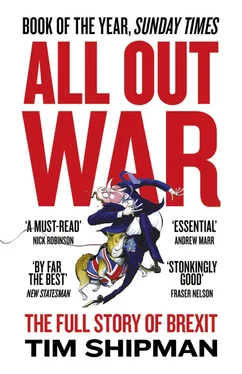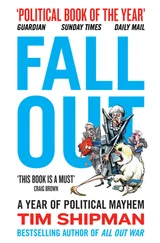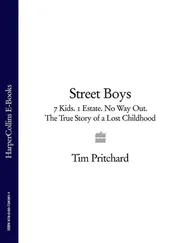Tim Shipman - All Out War - The Full Story of How Brexit Sank Britain’s Political Class
Здесь есть возможность читать онлайн «Tim Shipman - All Out War - The Full Story of How Brexit Sank Britain’s Political Class» — ознакомительный отрывок электронной книги совершенно бесплатно, а после прочтения отрывка купить полную версию. В некоторых случаях можно слушать аудио, скачать через торрент в формате fb2 и присутствует краткое содержание. Жанр: unrecognised, на английском языке. Описание произведения, (предисловие) а так же отзывы посетителей доступны на портале библиотеки ЛибКат.
- Название:All Out War: The Full Story of How Brexit Sank Britain’s Political Class
- Автор:
- Жанр:
- Год:неизвестен
- ISBN:нет данных
- Рейтинг книги:3 / 5. Голосов: 1
-
Избранное:Добавить в избранное
- Отзывы:
-
Ваша оценка:
- 60
- 1
- 2
- 3
- 4
- 5
All Out War: The Full Story of How Brexit Sank Britain’s Political Class: краткое содержание, описание и аннотация
Предлагаем к чтению аннотацию, описание, краткое содержание или предисловие (зависит от того, что написал сам автор книги «All Out War: The Full Story of How Brexit Sank Britain’s Political Class»). Если вы не нашли необходимую информацию о книге — напишите в комментариях, мы постараемся отыскать её.
All Out War: The Full Story of How Brexit Sank Britain’s Political Class — читать онлайн ознакомительный отрывок
Ниже представлен текст книги, разбитый по страницам. Система сохранения места последней прочитанной страницы, позволяет с удобством читать онлайн бесплатно книгу «All Out War: The Full Story of How Brexit Sank Britain’s Political Class», без необходимости каждый раз заново искать на чём Вы остановились. Поставьте закладку, и сможете в любой момент перейти на страницу, на которой закончили чтение.
Интервал:
Закладка:
Douglas Carswell was twenty-two, and had just finished a history degree at the University of East Anglia before taking a job ‘stuffing envelopes in an MP’s office’. If Carswell was typical of other young men educated at Charterhouse in taking the first steps up the political ladder at a tender age, it is tempting to think that he attracted the attention of Daniel Hannan because there was also something exotic about him. Beyond the intensity of his gaze and the lopsided jawline, so sharp it could slice ham, Carswell spent most of his formative years in Uganda, where his father – a Scottish doctor called Wilson Carswell – had diagnosed some of the first cases of HIV. Wilson’s experiences under the dictatorship of Idi Amin were the inspiration for the character Dr Nicholas Garrigan in Giles Foden’s 1998 novel The Last King of Scotland . Carswell later admitted that his libertarianism owed much to his experiences under Amin’s ‘arbitrary rule’. It also made him susceptible to Daniel Hannan’s views about the European Union.
Born in the Peruvian capital Lima, Hannan also spent part of his childhood abroad and escaped to a top public school, in his case Marlborough, before he arrived at Oxford, where he beat Nicky Morgan, the future education secretary and Remain campaigner, to the presidency of the Oxford Union debating society. Hannan was in his first term at university when the Maastricht Treaty ‘radicalised’ him about leaving the EU: ‘I can date exactly the moment of my activism on this issue which has consumed the last twenty-six years of my life. It was during a very short window between the overthrow of Margaret Thatcher and John Major putting his initials to the first draft of the Maastricht Treaty.’ In that three-week period Hannan and the future Tory MP Mark Reckless founded the Oxford Campaign for an Independent Britain. ‘Maastricht was the moment that the EU extended its jurisdiction into foreign affairs, criminal justice, citizenship, the environment, and also the moment where it adopted all the trappings and symbols of nationhood: the flag, the national anthem,’ Hannan said. ‘You couldn’t con yourself any longer that this was a voluntary association of independent states, or a free-trade area.’
Hannan was also inspired by an interview he had seen with the Latvian foreign minister Ģirts Valdis Kristovskis, whose country was newly free from the Soviet yoke. Asked, on a trip to Britain, if Latvia was a properly sovereign country, he said, ‘Yes, Latvia is now more independent than the United Kingdom.’ ‘That really hit home, that remark,’ Hannan recalled. ‘I suddenly thought, “My God, he’s right.” That was when I swore – the old storybooks would call it a terrible oath – that we were going to get out of the European Union, at whatever cost.’
Hannan was one of the most eloquent products of a Eurosceptic movement in the Conservative Party which grew slowly after the 1975 referendum on membership of the Common Market, and found full voice when Margaret Thatcher slammed her handbag on the table and demanded her money back when securing the British rebate in 1984. She would later become the first of three Conservative prime ministers in succession to lose the highest office as a result of the European issue.
The party was bitterly divided by the time John Major took over from Thatcher in November 1990. By the 1997 general election, when Sir James Goldsmith’s single-issue Referendum Party grabbed more than 800,000 votes, the Conservative Party was verging on civil war. If Thatcher’s fall, after the incision of the knife by her former chancellor and foreign secretary Sir Geoffrey Howe, was the last gasp of the Conservative Europhiles, so John Major’s six and a half years in Downing Street were disfigured by the emergence of a group of committed and uncompromising Eurosceptics whom he dismissed as ‘bastards’ – a term that implies fringe relevance as well as unpalatable behaviour – but whose views (and briefly under Iain Duncan Smith, the sceptics themselves) came to dominate the party.
These Palaeosceptics earned their spurs during the battles over the Maastricht Treaty in 1992, and fought on, limpet-like but in vain, against the subsequent Treaties of Amsterdam (1997) and Lisbon (2007). It is interesting to speculate now about what might have happened if they had been more successful then. Bernard Jenkin said, ‘If John Major had not forced through the Maastricht Treaty, and had not opposed a referendum on the Maastricht Treaty, the Maastricht Treaty would never have become ratified. There would have been no euro, no eurozone, no eurozone crisis, no bailout, no European citizenship, no migration crisis, and we would probably still be happily a member of the European Communities.’
When he bumped into Douglas Carswell in Bellamy’s in 1993, Daniel Hannan was director of the European Research Group, a support service for Eurosceptic MPs who had agreed to pay him a salary. ERG held regular breakfast meetings in the Attlee Room in the House of Lords under the chairmanship of Malcolm Pearson, a Tory peer who would later defect to Ukip. Regular attendees included the Palaeosceptics, members of the Bruges Group, the Freedom Association and a certain Times writer called Michael Gove. At this stage most wanted to return to the pre-Maastricht deal, rather than questioning the result of the 1975 referendum. But when Hannan sat down to lunch with Carswell he immediately told him, ‘We need to leave the European Union, and we need a referendum in order to do so.’
Carswell remembered, ‘I said, “No, we need to reform the EU from within, we’ve got to use our influence, we’ve got to make it come our way.” I said absolutely everything that the Cameroonians were saying later. Literally by the time we’re having coffee, I think: “Yeah, we need to leave the EU, and this is the way to do it, this guy is talking sense.” After forty-five minutes, I’m convinced. Dan spends the next twenty-five years trying to persuade the rest of the party. I wish everyone else in the Tory Party had been around that table. It would have meant a lot less grief.’
While the Palaeosceptics waged constitutional war in the Commons, for two decades Hannan became an intellectual driver of the push for a referendum, with Carswell at his side. When Cameron reneged on his ‘cast-iron’ pledge of a referendum over the Lisbon Treaty, Hannan resigned his ‘admittedly very paltry’ frontbench post in the European Parliament. When he called Tory high command in November 2009 to tell them of his decision, Hannan spoke to ‘a very senior aide’ to Cameron, who bears all the characteristics of Ed Llewellyn, and said, ‘Just so you know, this was your last chance to have a referendum on something other than leaving. I’m now devoting myself, full-time, to getting a referendum on “In” or “Out”.’ The response was laughter and a jaunty ‘Good luck with that.’
Just over four years later it was party policy.
In 2011 Hannan wrote a blog suggesting the prime minister hold a renegotiation with Brussels and then a referendum afterwards. Now he was only two years ahead of his time. By then he had helped set up ‘the People’s Pledge’. In 2012 the organisation got the Electoral Reform Society to conduct a complete ballot of every registered voter in the marginal constituencies of Thurrock in Essex, and Cheadle and Hazel Grove in south Manchester, asking whether voters wanted a referendum. On turnouts higher than those seen in local elections, all three voted overwhelmingly in favour. ‘It started becoming obvious to people that a referendum was coming,’ Hannan said. Another of those involved was a young Eurosceptic called Chris Bruni-Lowe, who was to play a pivotal role in future events.
‘Dan put in place many of the key ingredients that would go on to create the Vote Leave team,’ Carswell said. ‘He was one of the guys who put the machine together, and realised what the machine had to look like. He played an absolutely key role.’
Читать дальшеИнтервал:
Закладка:
Похожие книги на «All Out War: The Full Story of How Brexit Sank Britain’s Political Class»
Представляем Вашему вниманию похожие книги на «All Out War: The Full Story of How Brexit Sank Britain’s Political Class» списком для выбора. Мы отобрали схожую по названию и смыслу литературу в надежде предоставить читателям больше вариантов отыскать новые, интересные, ещё непрочитанные произведения.
Обсуждение, отзывы о книге «All Out War: The Full Story of How Brexit Sank Britain’s Political Class» и просто собственные мнения читателей. Оставьте ваши комментарии, напишите, что Вы думаете о произведении, его смысле или главных героях. Укажите что конкретно понравилось, а что нет, и почему Вы так считаете.












